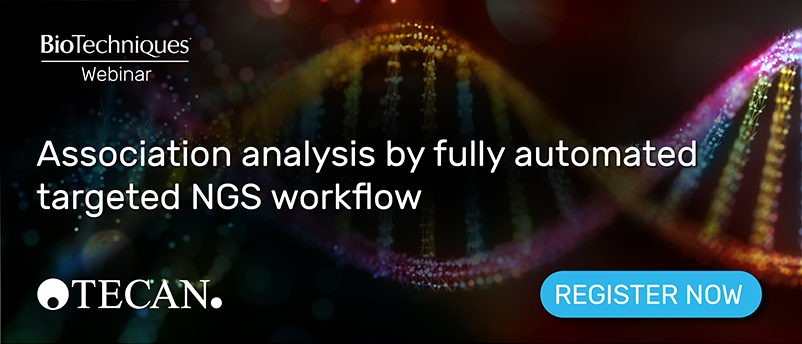Association analysis by fully automated targeted NGS workflow

WATCH NOW
This webinar demonstrates the application of Allegro genotyping on a panel of multi-parent advanced generation inter-cross maize recombinant inbred lines (RILs), deriving from the intercrossing of eight founder lines. We show how these markers may be used to study the diversity of the RILs and to support the identification of quantitative trait locus of agronomic relevance.
Multi-parental populations (MPPs) have been proposed as outstanding genetic resources for mapping quantitative trait locus (QTL) in crops. MPPs are based on the intercrossing of genetically divergent parental lines to produce a set of recombinant inbred lines (RILs) whose genome is a mosaic of the original parental lines. This design allows higher definition in QTL mapping, owing to low population sub-structure, high recombination density and high diversity. Among MPP designs, multi-parent advanced generation inter-cross (MAGIC) has been successfully used in animals and plants to map highly complex quantitative traits.
The high diversity of MAGIC RILs requires high-density and informative molecular markers to accurately reconstruct pedigree relationships among lines and subsequently assign each recombination block to each of the donor parents along the genome. To this purpose, the Allegro genotyping system has been shown to be an unprecedented tool to retrieve high-density genetic information through targeted and untargeted SNP typing of some 50k selected loci utilizing a single primer enrichment technology (SPET). Moreover, the implementation of the Allegro protocol on the DreamPrep liquid handler enabled the preparation of hundreds of barcoded libraries with a completely hands-off workflow, shortening the sample-to-data lead time.
What will you learn?
- Discover MAGIC populations as a powerful tool for the dissection of quantitative traits in maize
- Explore targeted genotyping as a cost-effective solution to retrieve the most relevant genetic information in complex genomes
- Acquire valuable knowledge of how tailored automation can bring moderately complex NGS workflows to production scale
Speaker
 Davide Scaglione
Davide Scaglione
Chief Technology Innovation Officer
IGA Technology Services (Udine, Italy)
Davide Scaglione is Chief Technology Innovation Officer at IGATech. He is in charge of the development of new sequencing-based applications, bioinformatics operations, and coordinates business activities. After his Ph.D. in plant genetics at the University of Turin in collaboration with the University of Georgia, he spent a one-year post-doc at the Genome Center in Davide (California). He also worked as Head of Innovative Analytical Development at Merck KGaA. He authored several scientific publications, mainly in plant genomics and bioinformatics. His major application focuses are genotyping systems, de novo assembly techniques, and integration of customized protocols with analytical pipelines.
 Leonardo Caproni
Leonardo Caproni
Postdoctoral Fellow
Institute of Life Sciences (Pisa, Italy)
Leonardo works as a postdoctoral fellow at Sant’Anna School of Advanced Studies in the Crop Genetics Team within the H2020 project CAPITALISE. His work currently focuses on developing tools and innovative approaches to mapping photosynthesis-related QTL using either multi-parental populations or diversity panels. He is interested in landscape genomics, especially studying how future climate-driven phenomena will affect patterns of adaptation and productivity of cereals.
During his Ph.D. research period (2015-2019) at the University of Perugia, he worked on several topics with a specific focus on population genetics, GWAS, and candidate gene analysis; he also collaborated with both the Genetic Resources Programme and HarvestPlus at the International Center of Tropical Agriculture (CIAT) in Cali, Colombia.
This webinar was recorded on Tuesday 30th November 2021
